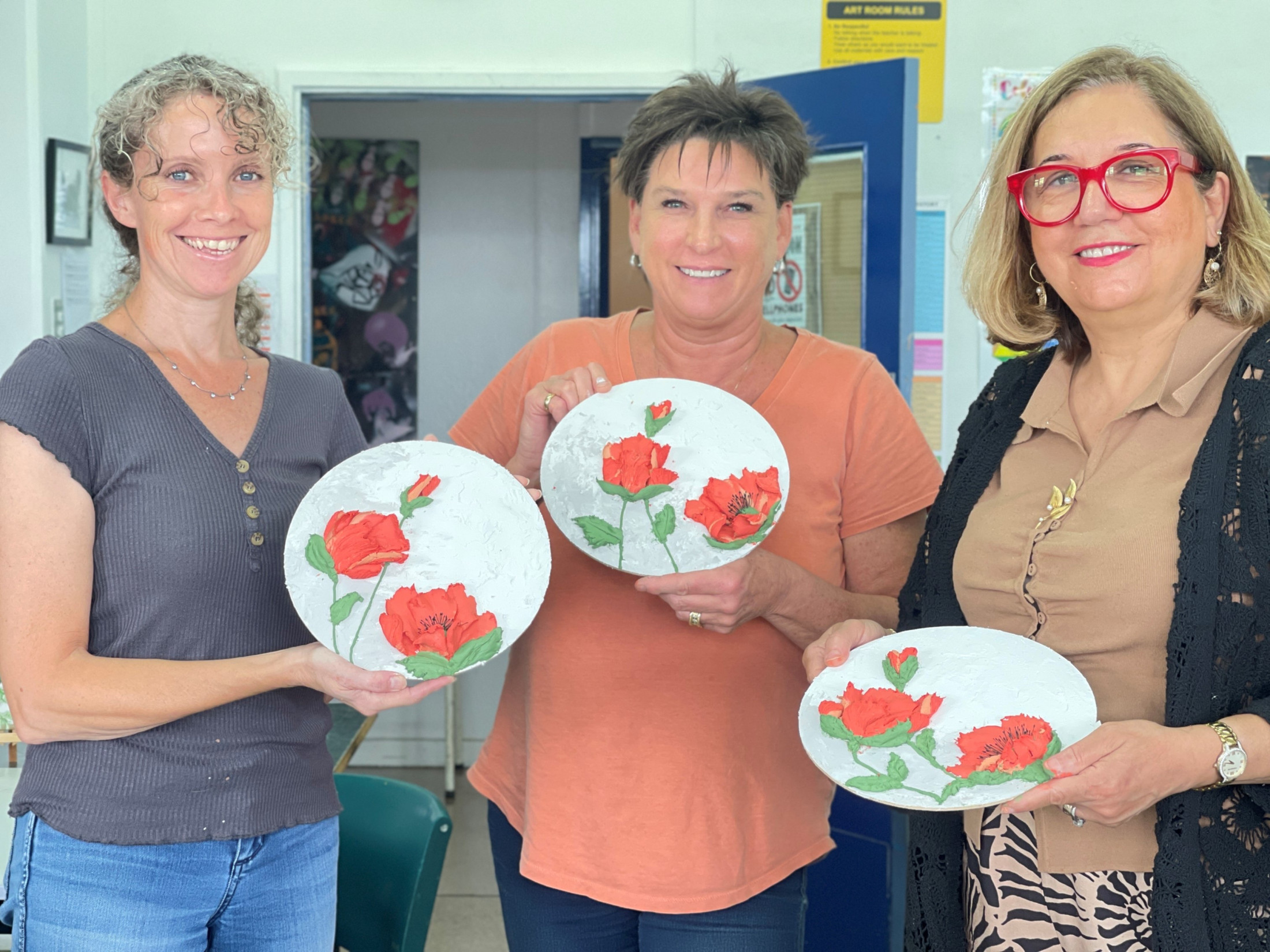Principal's Panui - 15 March 2024
Kia ora e te whanau o te Kotuku
As we head toward week 8 of term 1, there is an increased focus on academic achievement and discussion about what needs to be completed to ensure success. With that in mind we are asking students to identify key goals that they believe will enhance their chance of success this year. This is not a new exercise but a refinement of previous goal setting activities that were much broader. This year we want to capture three main academic goals that students feel they need to work toward this year.
Academic Goal Setting at Rutherford
On Monday we began the process of collecting every student's academic goals for 2024 with the purpose of sharing that information back with you. We want to involve families more in the conversations students have with their teachers about school and achievement. We want to help families understand the NCEA assessment system. We want to be ambitious for every student’s achievement with a particular emphasis on the building blocks of success - being literate, being numerate and being lifelong learners.
Education gives us choices - that’s not just relevant to school students. It relates to all of us throughout our lives, trades and professions. To upskill gives us new opportunities, but it’s not always easy. Those who find learning a straightforward process will always have an advantage. To be a competent learner you must be able to access content that gives you new knowledge and skills. You must be able to plan ahead and prioritise resources such as time and money, which are often in short supply. You must make informed choices and be selective about where you will focus your efforts for the greatest gain.
We are asking what students want to achieve in 2024, but we are also asking them about the foundational learning skills such as literacy, numeracy, organisational skills and studying strategies that will underpin their success.
Skills such as planning ahead and designing a revision timetable are referred to as executive function. Teenagers, in general, are not famous for their high levels of executive function. Teachers are constantly trying to improve these skills within their students. At Rutherford, goal setting and study skills have been part of the tutor class programme for several years. Your child’s tutor teacher will be speaking to all their students about their plans and goals throughout the year. In 2024 we want to bring parents and caregivers into that conversation and we are taking a school wide approach to goal setting so we can make it part of our reporting process.
We are still part way through the process of collecting data on your student’s goals. Some interesting patterns are emerging about what our rangatahi are saying regarding their aspirations for this year:
- When asked about the learning habits they want to work on in 2024, most senior students are aiming to improve their exam and study skills, as well as their ability to plan ahead and get started early on assessments. A great way to assist students is to ask them to show you all their course outlines from google classroom and plot all the due dates on a wall chart or calendar. Put that in a family space in your house and use the information to combat the “nah, I don’t have any homework” response that you might be hearing.
- The vast majority of our junior students are aiming to improve their vocabulary and pass the literacy co-requisite. Reading books, reading or watching the news, discussing what is going on in the world are all good ways to add new words into our lexicon. Ask your students - what is a new word they have learnt in school today? Over the course of a year they will be learning hundreds of new terms or new ways of using words that they thought they already knew.
- Unsurprisingly, a majority of all students see the critical value of literacy and numeracy, and have a focus on improving in English and Maths. Both departments offer after school homework centres on Tuesday after school with Maths in the Info commons and English in B9. We encourage students to take advantage of this service early in the year before gaps in their knowledge seem insurmountable.
19 March - Haka Competition and Mufti Day
This term students have been working really hard learning the school haka. Tuesday 19 March is competition day. Each house will perform the haka with Mr Moore as judge. The winning house is awarded points based on power, cohesion and participation. First place will gain 400 points, second will gain 300 and third will gain 200 points. Some excellent work has gone into the preparation by all the Tutors, school leaders and our Maori department, setting up for a wonderful competition.
Students can come to school in mufti but they must come dressed in their house colours. They bring a gold coin donation and all money collected will go charities that the house leaders will choose.
Tuesday 19 March - Fiafia Night - 6pm Sports Hall
I am looking forward to Tuesday March 19th and seeing the six groups who have entered for the Polyfest perform here at the home of the Kotuku. This will be a last dress rehearsal before taking the opportunity to represent Rutherford College, their whanau and the wider Te Atatu Community at the Polynesian Festival. We are expecting big numbers to attend this evening which starts at 6pm and will finish at approximately 7.30 pm. Parking will be at a premium, so we ask in advance for your patience and to follow the guidance of those who have volunteered to support this event by giving up their time to help with parking and managing the night. The venue for the event will be the Sports Hall. Koha entry. We hope you can come along to witness their hard work and see how they have explored this year's theme for Polyfest "Me anga whakamuri kia koke whakamua" Looking to our past to determine our future.
Tuesday 26 March - NCEA Evening for Parents and students
Parents and Caregivers are warmly invited to the NCEA Information Evening held in the Hall at 6pm on March 26. This event is suitable for families new to the college and/or new to NCEA. There will be a brief overview of NCEA with a focus on Level 1 and the new literacy and numeracy requirements. You will have the opportunity to ask questions. Our Maori and Pasifika team will be there for any whanau with questions about support for Maori and Pasifika learners. Tea and coffee will be served. Please be seated by 6.00 pm.
Health Notice to Parents and students
Hepatitis A case at Rutherford College
A child who attends the school has recently been confirmed with hepatitis A, an infection affecting the liver. The illness is usually mild in children but can be severe in adults.
National Public Health Service has assessed the risk of hepatitis A infection spreading to other children, families and staff.
The risk of hepatitis A spreading through the school is low due to good hand washing and hygiene, how infectious the child was likely to be while at school and the type of contact they have had with other children.
Hepatitis A immunisation is sometimes used to try to prevent infection in close contacts of a case, e.g. those in the same household. However, the risk of spread of hepatitis at the school is low, and therefore there is no need for immunisation at this time. If the situation changes, the school and the parents will be informed immediately.
What is Hepatitis A?
Hepatitis A is caused by a virus, which is found in the faeces (poos) of those with the infection. It can be spread from person-to-person or by eating or drinking contaminated food or water.
Hepatitis A causes a mild illness in children. The symptoms include fever, an upset stomach, and feeling tired and generally unwell. Many children do not show any signs that they have been infected. Very occasionally children develop jaundice, a yellowing of the skin and the whites of the eyes.
Teenagers and adults are usually much sicker than children with hepatitis A. People with hepatitis A recover completely with no permanent damage done and develop lifelong immunity so they can’t get it again.
What Should You Do
• Watch your child for symptoms of hepatitis A. After being exposed to the hepatitis A virus it can take from 2 weeks up to 2 months before a person shows any signs of infection. If you are concerned your child might have hepatitis A, see your GP. Hepatitis A is diagnosed by a blood test.
• Teach your children good hand washing. The best way to prevent the spread of infection is by careful hand washing with soap and proper drying, especially after using the toilet and before eating.
• For more information. Please read the factsheets we have provided on hepatitis A and Hand Hygiene (hand washing) or visit www.arphs.health.nz/public-health-topics/disease-and-illness/hepatitis-a/
• If you have any concerns or questions ring Healthline on 0800 611 116. You can contact the service seven days a week and you can also ask for interpreters.
Policies and Procedures:
Rutherford College subscribes to SchoolDocs for all policies and procedures. These policies are available to all staff, students and whanau. You can access the policies here. Username: rutherfordcollege. Password: kotuku
This term reviews are:
Te Tiriti o Waitangi, Parent Involvement, Communicating with Parents, Community conduct Expectations, Reporting to parents on student progress and achievement.
Reviews are open to everyone. Follow the link above to access the Rutherford College site. Click on the blue review button to see which policies are being reviewed. Follow the link to the policy you want to read and/or review. You can make comments and it can be completed anonymously if you prefer. The reviews are open until the end of the term.
Upcoming Events:
19 March - Fiafia Night 6.00pm - Sports Hall
21-23 March Polyfest
26 March - NCEA Evening - School Hall, Champion of Champion Athletics
28 March - Western Zone Swimming
29 March - 2 April Easter Weekend
10-11 April Studio Show
12 April - End of Term 1, Progress Reports
Kia Kaha
Gary Moore


